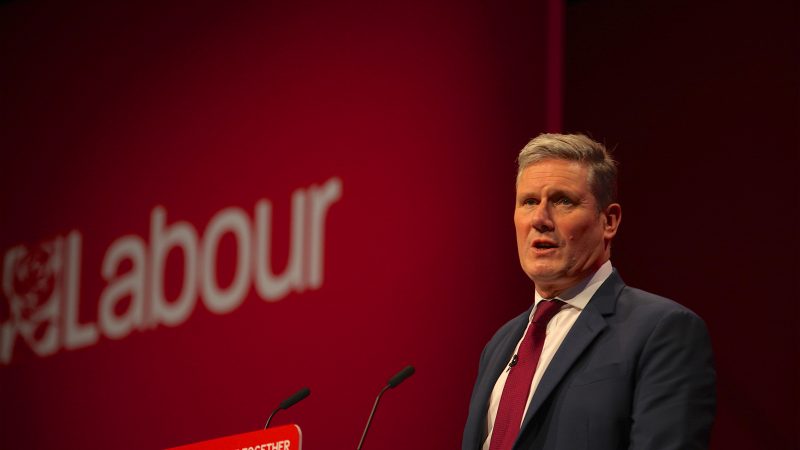
In 1997, Tony Blair swept to victory on a wave of optimism, declaring: “A new dawn has broken, has it not?” The country was buoyed by a palpable sense of optimism that made everything feel possible.
Labour channelled the momentum into tangible change: the country’s first national minimum wage, the creation of a Scottish parliament and a Welsh Assembly, peace in Northern Ireland, significant investment in health and education, redistribution of wealth and poverty reduction, the writing off of Third World debt and the introduction of civil partnerships.
Fast-forward to today, and the likely election of Keir Starmer as Prime Minister lacks the promise of similar euphoria. It’s not a question of his character or his words; rather, the sobering reality that Britain is broken and almost half its people feel broken too.
It’s in response to this unsettling reality that we’re launching The New Britain Project. Through engagement with people who would never dream of joining a political party, the project aims to create a dialogue around how Britain can believe in itself again.
Voters think Britain is broken, with trust in politics at rock bottom
The polling results do, however, paint a grim picture of the challenge: 58% of Britons believe nothing works anymore. A staggering three-quarters of respondents think we’re going backwards, with just 30% holding out hope for Britain’s future. The disillusionment is deeply personal. Nearly half of the population feels unfulfilled, lamenting a lack of control over their life’s direction. This pervasive sense of stagnation and powerlessness is, without a doubt, one of the most tragic aspects of the current national mood.
Contrast this with the mood when Britain, tired after 18 years of the Thatcher and Major governments, turned to New Labour. There was national fatigue, yes, but hope remained. Today, with political trust at rock bottom and two-thirds of the population feeling that the social contract is in tatters, political rhetoric seems empty.
Trust in politicians has always been shaky, but in a post-pandemic landscape, it appears to have gone through the floor. Only 14% of the more than 2,000 people The New Britain Project polled thought that MPs had the public’s best interests at heart. Focus groups expose such visceral disillusionment and distrust that you have to wonder if British people have been gaslit into forgetting politics can – for all its faults – make a difference.
Key voter groups show the greatest appetite for change
Clearly, Britain needs a reset. But the nation is divided on the prospect of major reform, torn between scepticism towards grand promises and the fear politicians just aren’t up to the job. Our poll showed that whilst 45% were in favour of a complete rethink in how we deliver public services, a similar number thought that small fixes would be enough to get a handle on the issues. Some within Labour therefore, wary of unsettling swing voters, advocate for a cautious approach ahead of the election, emulating the ‘safe pair of hands’ strategy of Anthony Albanese in Australia.
Yet The New Britain Project’s polling offers a more optimistic interpretation. There’s a key swing group – dubbed the ‘loyal nationalists’ by pollsters, largely comprising 2019 Tory voters from the ‘Red Wall’ – who, despite harbouring the deepest despondency about the state of the country, also display the most robust appetite for change. Almost two-thirds of these Red Wall voters, along with the more traditional Labour base of educated city dwellers, are united in believing the country is broken and wanting to see real reform. And this before anyone has made a persuasive argument for it.
Action is needed now before disillusionment becomes irreversible
There’s a sense that Keir Starmer grasps this too, as evidenced by his recent bold policy announcements on housing and the NHS. He understands not only the magnitude of Britain’s challenges but also that honesty about the challenges, combined with a willingness to be held accountable, might lead to a path where political courage could triumph over mere competence. This strategy could not only secure an election victory but also provide the mandate needed to undertake the huge task of national renewal.
We must get this right as a nation before the rot of disillusionment becomes irreversible and we forfeit our opportunity to change course. A new dawn is indeed breaking; let’s hope it’s not over a broken Britain.




More from LabourList
‘Tackling poverty should be the legacy of Keir Starmer’s government’
‘The High Court judgment brings more uncertainty for the trans community’
‘There are good and bad businesses. Labour needs to be able to explain the difference’